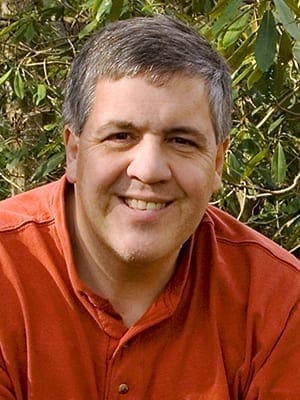One of the most powerful novels I’ve ever read is “The Brothers Karamazov” by Russian author Fyodor Dostoevsky.
In one portion of this classic, the character of Father Zossima tells his fellow monks the story of his brother Markel’s last days.
Markel, who previously cared little for God or religion, had a change of heart. He began asking for both God’s forgiveness and that of others.
Next, he did something no one could have expected: He asked the birds to forgive him.
“Birds of God, joyful birds, you, too, must forgive me because I have also sinned before you,” Markel declared.
Zossima then comments, “None of us could understand it then, but he was weeping with joy. ‘Yes,’ he said, ‘there was so much of God’s glory around me: birds, trees, meadows, sky, and I alone lived in shame. I alone dishonored everything, and did not notice the beauty and glory of it all.'”
When Markel’s mother told him he was “taking too many sins upon yourself,” he responded, “Dear mother, my joy, I am weeping from gladness, not from grief; I want to be guilty before them, only I cannot explain it to you, for I do not even know how to love them.”
I’ve been involved in a lot of discussions lately concerning forgiveness, but most of them related to people who had hurt one another.
In 40 years of ministry, I’m not sure I’ve heard anyone speak of asking the birds or nature to forgive them.
Yet, as I read Dostoevsky’s words again recently it seemed like what Markel did was something we all need to do.
In so many different ways, we sin against creation on a regular basis. The birds Markel spoke of have certainly suffered.
At John James Audubon State Park near my home there is a museum that features a lot of items related to Audubon’s life.
One item tour guides invariably point out is a well-preserved stuffed passenger pigeon.
At one time, there were millions of these birds but today they are now extinct. I almost feel like the next time I’m there I need to ask its forgiveness.
To some, asking a bird or some tree for forgiveness would sound ridiculous, but I do not believe that it is at all.
When you look at the stress that we have placed on animals as we’ve wiped out their habitat, how can you not apologize? When you see where huge majestic trees have been clear cut, how can you not weep and feel sorry? When you see fish that have died from pollution washing up on the shore, how can you not ask for their forgiveness?
In Dostoevsky’s novel, Merkel admits that he does not “even know how to love” all of God’s creatures.
One of the other characters implores, “Love all God’s creation, both the whole and every grain of sand. Love every leaf, every ray of light. Love the animals, love the plants, love each separate thing.”
He continues, “If thou love each thing, thou wilt perceive the mystery of God in all; and when once thou perceive this, thou wilt thenceforward grow every day to a fuller understanding of it: until thou come at last to love the whole world with a love that will then be all-embracing and universal.”
It is certainly clear that Dostoevsky believed that we should, in fact, love all of creation and for good reason – so that we might in turn know and love the Creator.
In any relationship where love is involved, there will come a time when we must ask the one we love for forgiveness.
If we truly love God’s creation, there will likewise be times when we must say, “I’m sorry.” As I look around me, it would seem that time is now.
 Chuck Summers is a pastor of the First Christian Church (Disciples of Christ) in Henderson, Kentucky. He is also a photographer whose work has appeared in numerous national magazines and calendars; he has published three photography books. A version of this article first appeared on Seeing Creation, a blog that Summers co-authors with Rob Sheppard, and is used with permission.
Chuck Summers is a pastor of the First Christian Church (Disciples of Christ) in Henderson, Kentucky. He is also a photographer whose work has appeared in numerous national magazines and calendars; he has published three photography books. A version of this article first appeared on Seeing Creation, a blog that Summers co-authors with Rob Sheppard, and is used with permission.
Chuck Summers is a pastor of the First Christian Church (Disciples of Christ) in Henderson, Kentucky.

